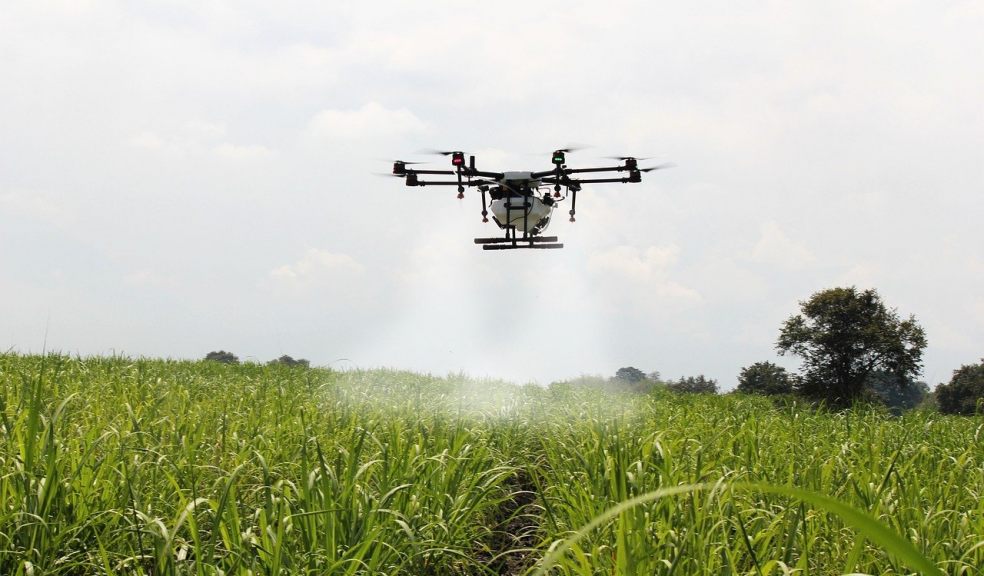
Using modern technology to boost plant growth sustainably
Governments around the world as now directing their attentions towards climate change. With the impact of global warming being classified as an emergency the need to move towards sustainable farming methods is a high a priority as it has ever been. Traditional farming methods are known to leave a sizeable environmental footprint in terms of pollution from fertilisers, damage caused to soil health, and the release of greenhouse gases. Fortunately, as we have developed as a race to understand these impacts, we have also had the ability to advance technological solutions that can assist.
A sustainable approach towards plant growth is seen as a holistic approach. It is based on farming methods that meet the needs of today’s society but also protects valuable as- sets for future generations. Sustainability recognises the fact that each farm is a system in its own right. A tweak anywhere will have an impact on every other component of that system. This means that beneficial change brought about by technology can impact the whole farm system.
As sustainable farming methods like hydroponics and aeroponics expand, growers increasingly rely on controlled-environment systems to manage light, nutrients, and climate with greater precision. Resources such as Growspec illustrate how efficient lighting and environmental control technologies can support these modern cultivation approaches. Integrating such tools helps reduce waste while improving consistency in plant development. This fits naturally within the broader shift toward technology driven, environmentally responsible food production.
We’re going to consider where this technology has had the biggest impact.
The use of drones
A technology that was harnessed by the military in order to observe enemy targets, drones went on to become accessible to all and even created a public nuisance! Their usefulness has been reclaimed by the farming industry in the journey towards sustainability.
Drones have been used as a way of patrolling areas of farmland and checking on the health of crops. This allows for the identification of hotspots where pests or diseases may be an issue. The fact that these drones have sensors and imaging capabilities, means that their role is critical in the long-term for reducing crop damage.
The reduction in crop damage isn’t just limited to drones being able to identify issues. Once a problem has been spotted, drones are also then part of the solution. They can be used to disperse beneficial insects in the air with complete accuracy. This use of biological organisms will play an increasingly key role in sustainability.
Drones can also help to improve the efficiency of applications of pesticides, fertiliser and micronutrients by clearly identifying the areas of a field that require specific treatment.
Hydroponics
This method of specialist farming involves plants being grown in a small amount of sand or gravel. Only the exact amount of nutrients required for each plant are provided and the biggest single benefit is that water consumption reduces by 90%.
It is not just the water conservation that is impressive. The use of hydroponics also sees a reduced pest problem. A well-managed set-up can see crops grow twice as quickly when compared to traditional methods and production increases between 3-10 times. In terms of feeding an ever-increasing population, the benefits here are clear.
Vertical farming is now being combined with hydroponics and non-carbon energy sources in urban settings. It means that all available space can be utilised and it also reduces the distance that produce needs to travel before it is sold/consumed. This reduction in food miles is clearly beneficial to the environment as a whole.
Aeroponics
This is a highly advanced technology which sees plants being suspended in the air. There is no soil involved in this method of growing and the roots are left fully exposed. This benefits the roots as they have easier access to beneficial gases such as oxygen. The direct result of this is healthier plants.
Essential nutrients are sprayed onto the exposed roots and the atmosphere is kept moist. This sees the removal of issues caused by overwatering such as mould. The water is recaptured, filtered, and reused, reducing the risk of pest and disease attack.
The key benefit brought about by aeroponics is that crops grow significantly faster. This means that there is the opportunity to grow and harvest more crops than would be possible with traditional methods. There is also a reduction in water use as well as that of chemicals and pesticides which have a negative impact on the environment.
Soil management
Soil is the basic feature of the farming ecosystem. Soil health plays a significant role in crop yield and so this is obviously an area of focus. The role of soil is to filter water, maintain living organisms, control the temperature of the earth, and to provide nutrients. By giving soil a boost, we can increase its effectiveness.
Sustainable farming products by Verdesian Life Sciences, such as AMPbiome, ensure that nutrient use is optimised. These products lead to sustainable growing as well as improved plant uptake. They also act to reduce fertiliser loss which has environmental, and financial, benefits.
AMPbiome itself is released into the soil. It initially acts by energising microbiome bacteria. It then goes on to boost enzyme activity and so optimises the nutrients available in the soil. The end results are crops that are healthier and that grow faster and stronger.













